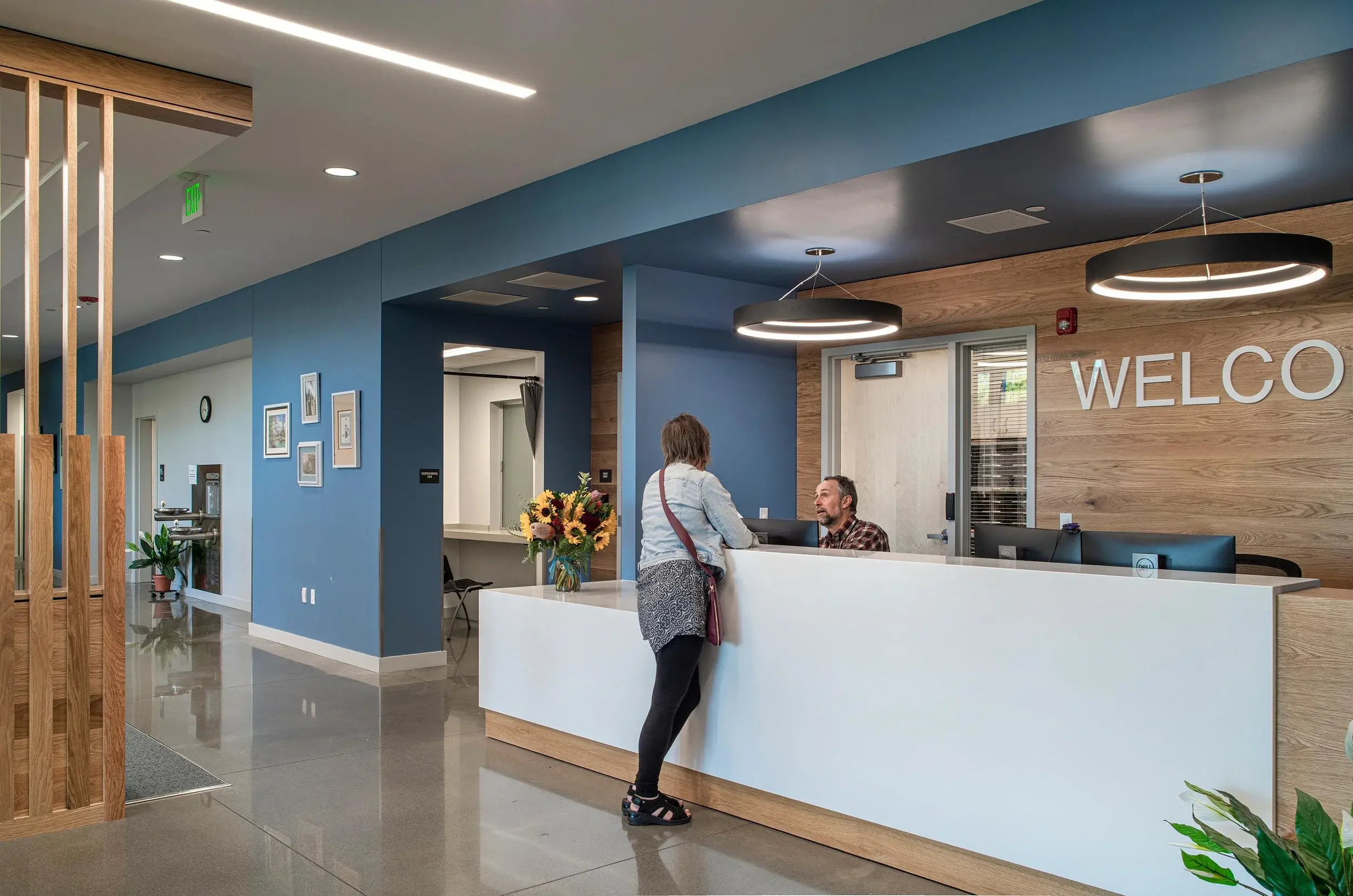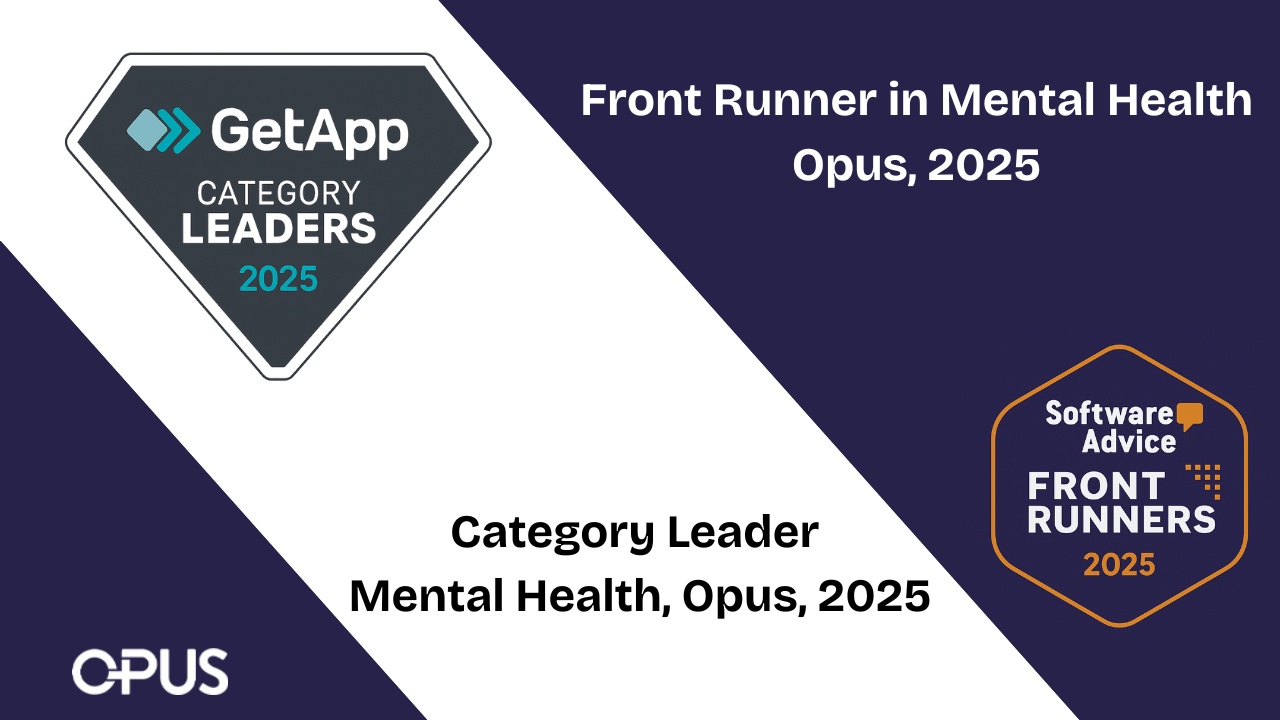A Day in the Life : “Michael the Dad”
Opus Behavioral is celebrating National Recovery Month by sharing stories of brave families and employees impacted by inpatient treatment and outpatient recovery. Interviews were conducted by Opus employees to share insights into what mental health therapy includes and why
#MentalHealthMatters
All names of participants have been changed for confidentiality.
Michael is a single Dad with four children who is a truck driver in the Midwest. He travels within a few hours of his home each day, and his shift is often nine to twelve hours. Michael wakes up just after 4:00am and is at work by 5:15am to get his vehicle from the main office. He’s often back on the road in his work truck by 5:30am to have materials loaded for multiple job sites.
“I juggle work, my phone, my ex-wife, mental health counselors - you name it” says Michael. “It’s stressful because I'm a person that grew up in a structured environment with my foster parents.”
Mental Health
It is normal for parents with children who have experienced sexual abuse or anxiety disorders to feel this way. Even with the types of treatment center support, a family coping with any mental disorder is never easy.
“Where are my kids going to be in the future? When are they going to be introduced to drugs or alcohol? How is their outpatient therapy going now? Mental health is just so important to us.”
As Michael is waiting for his colleagues to finish loading his truck, he often talks to co-workers about everyday life and the struggle they go through as parents.
“It’s scary. A lot of our guys are divorced, so juggling work and kids is difficult. Some of our guys are even battling their own substance abuse issues. I’m just working on being the best man I can be and keeping consistency for our family.”
Childhood Trauma
Michael leaves the load out just before 7am and is off to his first delivery. During the ride, he continues thinking about how his children’s therapy sessions are going.
“I worry on Monday morning because the kids are going to school again. Are they going to struggle each day? A part of me is still walking their path of growing up with childhood stress.”
Michael’s younger daughter struggles from the aftermath of having inpatient therapy and her classmates finding out once she returned to school.
“My younger daughter getting made fun of at school is tragic. My heart absolutely goes out to her. She was at lunch not too long ago and overheard another kid at the table saying, ‘guess what I heard about someone nearby who was in the hospital because she’s crazy’.
It was a peer his daughter did not know, but Michael believes it impacted her self-worth.
“I can’t put myself in her shoes - but I’m sure she had a mixture of emotions. It breaks my heart she must deal with that garbage. I just love her so much.”
Anxiety
Michael finally arrives at the construction site around 9am: a state highway redevelopment project. While his team unloads the truck, he sometimes reflects on anxiety from childhood.
“I remember both the good and bad. I only have a few good memories of my biological mother, and that caused me to struggle with my own self-worth”.
When Michael was six, he and his brother were taken for a car ride by his biological mother. They had no idea their lives were about to change forever.
“She stopped the car in front of a foster care center and told us to hop out onto the sidewalk. Then she looked out the window, said “I love you very much” and just drove away. I had no idea what to think. As a child with ADHD, my emotions were all over the place.”
Today, Michael realizes his biological mother did this because she was mentally ill at the time.
“I’ve never been in outpatient treatment or anything, but I use anxiety coping skills to remind myself of the good that came from it. Honestly, I wouldn’t have had the foster family that cared for me so dearly and loved me if that didn’t happen.”
Depression
After Michael’s truck is unloaded, he is headed to a different section of the job site just before 11am. Another text message buzzes on his phone from his oldest daughter asking if they have heard from their Mother.
“I don’t often say much about what’s going on with their Mom. I know things will get better for her, but I hate to keep it from the kids. Unfortunately, she has her own mental health issues.”
“I think it’s better they know how much I love them” Michael continues. “Her mental health problems include behind-the-scenes challenges that our kids don’t know about yet.”
Michael must financially support both households since the children’s Mother was recently fired from her job. It causes additional stress that adds to his normal anxiety level.
“My ex-wife has depression and often secludes herself. If anyone tries to show interest or care for her, she gets defensive. I’ve even heard from her family that she’s still having a rough time.”
Sexual Abuse
By 1pm, Michael’s off to his third delivery driving cement back and forth on the highway project. Those last hours of the job can often be the toughest for him, both mentally and physically.
“At quitting time, I’m finally like ‘thank goodness this long day is over’.”
Around 4pm, Michael has returned his truck to the main office and is driving home. He begins returning phone calls he cannot make during his daily job and receives another text from his oldest daughter, who he recently found out was sexually assaulted.
“As a father, you feel like you have failed. She’s in a treatment facility now and getting help, but she’s only 16 and childhood trauma is hard enough as it is.”
Teletherapy
Once at home, Michael has a quick dinner with the family then starts the computer to begin a teletherapy session with his youngest daughter.
“It’s a family session with me, my daughter and the therapist. It was a positive conversation tonight of setting new goals and things to look forward to in her future. I try to tell her I’m proud of her, and I love and encourage her.”
The telehealth therapist helps put life into perspective about the differences between a middle-aged father and his youngest daughter.
“Telehealth services help me understand life in her shoes. Sometimes the therapist says, “this is what your dad is saying” and then she uses examples of my trauma to explain how they can cope. Then she does the same for me to understand what the kids are going through. Good behavioral therapy, to me, means seeing the perspective of everyone involved.”
It is a feeling of reassurance for Michael that she is in a better place after the therapy session.
“If my kids are smiling and can go to bed peacefully, then I’m definitely alright.”
Contact us to schedule a free demo.
Learn how to customize OPUS EHR Suite for your unique business needs.






